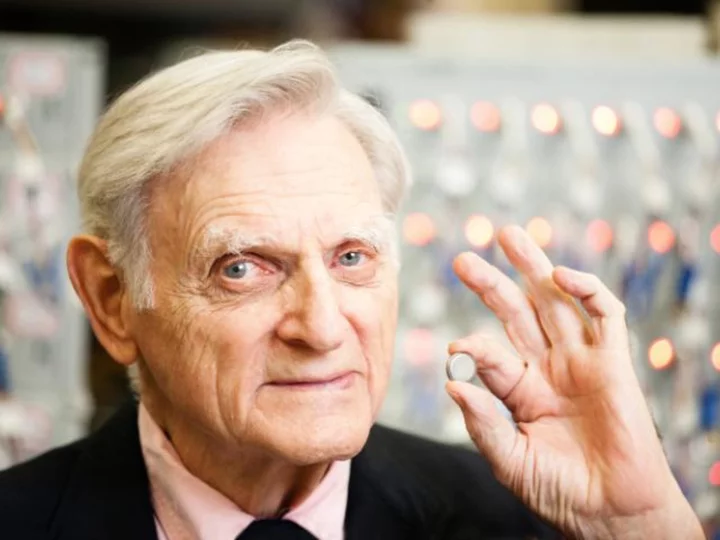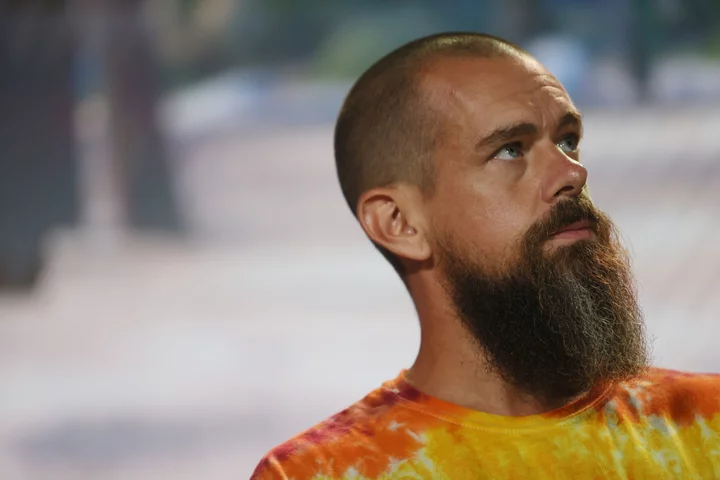John B. Goodenough, the Nobel Prize-winning engineer whose contributions to developing lithium-ion batteries revolutionized portable technology, has died. He was 100.
He died Sunday, according to a release from the University of Texas at Austin, where Goodenough served as a faculty member for 37 years. His cause of death was not provided.
"John's legacy as a brilliant scientist is immeasurable — his discoveries improved the lives of billions of people around the world," UT Austin President Jay Hartzell said in a statement Monday.
Goodenough is credited with the crucial discovery and development in the 1980s of materials that would allow for a more stable and powerful rechargeable battery.
He became the oldest Nobel Prize winner at 97 when he was awarded the 2019 prize in chemistry for the development of lithium-ion batteries, alongside M. Stanley Whittingham and Akira Yoshino.
Together, the trio's individual breakthroughs in battery technology "created a rechargeable world" in which portable electronics such as cell phones and laptops have become ubiquitous across the globe, the Nobel committee said in their announcement.
The innovation also laid the groundwork for the development of long-range electric vehicles and renewable energy storage.
"Live to 97 (years old) and you can do anything," Goodenough said after he was awarded the Nobel prize, according to a 2019 release from UT Austin.
In addition to his groundbreaking research, Goodenough was a beloved mentor and professor at UT Austin, the university said.
"Not only was John a tremendous researcher, he was also a beloved and highly regarded teacher. He took great pride in being a mentor to many graduate students and faculty members who benefitted from his wisdom and encouragement," UT Austin Provost Sharon L. Wood said in a statement.
Goodenough had been awarded the National Medal of Science, the Enrico Fermi Award and the Benjamin Franklin Medal, among several other prestigious accolades.
Born in Germany in 1922, Goodenough grew up in the northeastern US and earned a bachelors degree in mathematics from Yale University. After serving in the US Army as a meteorologist, he earned a master's degree and Ph.D. in physics from the University of Chicago in 1952, according to UT Austin's release.
His career began at Massachusetts Institute of Technology's Lincoln Laboratory that year. In his 24-year tenure at MIT, he was among the researchers that laid the groundwork for random-access memory (RAM) used in laptops and desktop computers.
In 1976, Goodenough became a professor and head of the Inorganic Chemistry Laboratory at the University of Oxford, where he eventually made his lithium-ion battery breakthrough, the release said.
He went on to join the faculty of UT Austin in 1986, where he became known for his "quick wit and infectious laugh," the university release said.
"That laugh could be heard reverberating through UT engineering buildings — you knew when Goodenough was on your floor, and you couldn't help but smile at the thought of running into him," the release said.
Goodenough and his wife Irene were married for more than 70 years until her death in 2016, the university said. That year, he established the the Irene W. Goodenough Endowed Presidential Scholarship in Nursing in his wife's honor.
Additionally, he created the John B. and Irene W. Goodenough Endowed Research Fund in Engineering and St. Catherine's College at the University of Oxford established a Goodenough Fellowship in Chemistry in his honor.
"John was simply an amazing person — a truly great researcher, teacher, mentor and innovator," said Roger Bonnecaze, dean of UT Austin's Cockrell School of Engineering.
"His joy and care in all he did, and that remarkable laugh, were infectious and inspiring," Bonnecaze said in a statement. "What an impactful life he led!"









